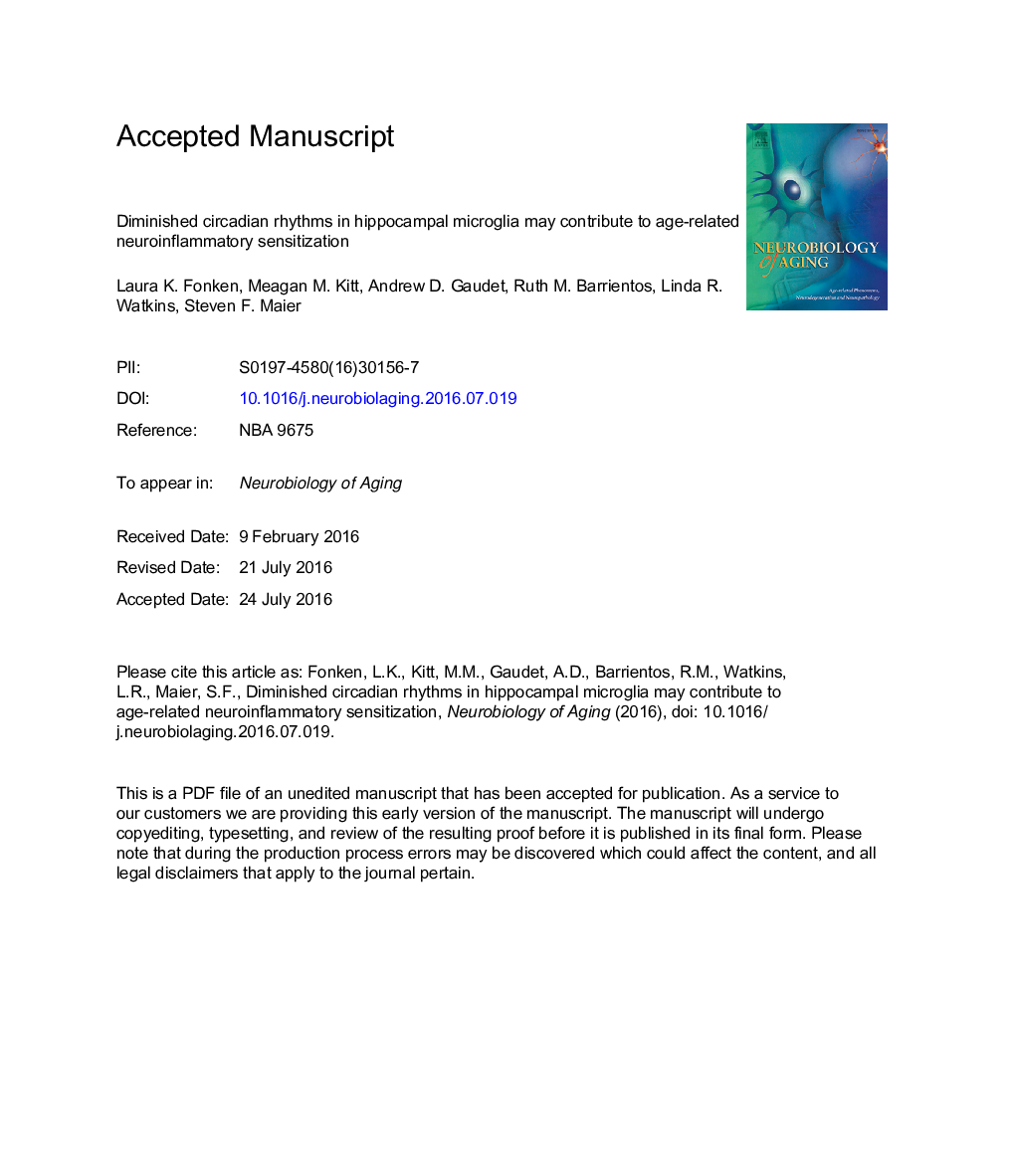| کد مقاله | کد نشریه | سال انتشار | مقاله انگلیسی | نسخه تمام متن |
|---|---|---|---|---|
| 6803260 | 1433537 | 2016 | 45 صفحه PDF | دانلود رایگان |
عنوان انگلیسی مقاله ISI
Diminished circadian rhythms in hippocampal microglia may contribute to age-related neuroinflammatory sensitization
ترجمه فارسی عنوان
ریتم های روزانه دیررس در میکروگلاییا هیوکوکال ممکن است به حساسیت عصبی ناشی از سن کمک کننده باشد
دانلود مقاله + سفارش ترجمه
دانلود مقاله ISI انگلیسی
رایگان برای ایرانیان
کلمات کلیدی
موضوعات مرتبط
علوم زیستی و بیوفناوری
بیوشیمی، ژنتیک و زیست شناسی مولکولی
سالمندی
چکیده انگلیسی
Aged animals exhibit diminished circadian rhythms, and both aging and circadian disruption sensitize neuroinflammatory responses. Microglia-the innate immune cell of the central nervous system-possess endogenous timekeeping mechanisms that regulate immune responses. Here, we explored whether aging is associated with disrupted diurnal rhythms in microglia and neuroinflammatory processes. First, hippocampal microglia isolated from young rats (4 months F344XBN) rhythmically expressed circadian clock genes, whereas microglia isolated from the hippocampus of aged rats (25 months) had aberrant Per1 and Per2 rhythms. Unstimulated microglia from young rats exhibited robust rhythms of TNFα and IL-1β mRNA expression, whereas those from aged rats had flattened and tonically elevated cytokine expression. Similarly, microglial activation markers were diurnally regulated in the hippocampus of young but not aged rats and diurnal differences in responsiveness to both ex vivo and in vivo inflammatory challenges were abolished in aged rats. Corticosterone is an entraining signal for extra-suprachiasmatic nucleus circadian rhythms. Here, corticosterone stimulation elicited similar Per1 induction in aged and young microglia. Overall, these results indicate that aging dysregulates circadian regulation of neuroinflammatory functions.
ناشر
Database: Elsevier - ScienceDirect (ساینس دایرکت)
Journal: Neurobiology of Aging - Volume 47, November 2016, Pages 102-112
Journal: Neurobiology of Aging - Volume 47, November 2016, Pages 102-112
نویسندگان
Laura K. Fonken, Meagan M. Kitt, Andrew D. Gaudet, Ruth M. Barrientos, Linda R. Watkins, Steven F. Maier,
